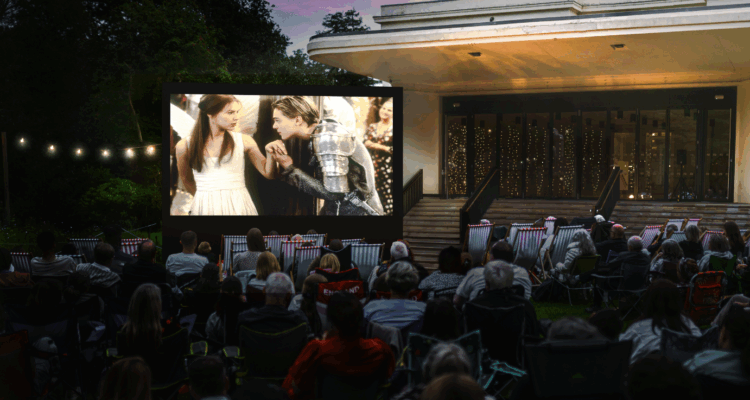Featured Poem: The Dreary Change by Sir Walter Scott
We're advocates of poetry being read everywhere at The Reader Organisation - on the bus or train, in a park (as quite a few of us have done at our HQ at Calderstones), in the bath (though you run the risk of the words getting soggy)...the wonders of technology have helped overcome the pitfalls of the last option, and recently a wider-scale innovation has brought verse to the physical world. To mark the 300th anniversary of the 1715 Jacobite uprising, one of Sir Walter Scott's poems has been projected onto the landscape in the Scottish highlands. On the Massacre of Glencoe commemorates one of the most significant events of the first Jacobite uprisings in the country when 38 members of the Clan MacDonald were killed by visiting government troops, and is just one verse of many tributes and songs to do so.
The rather breathtaking marriage of literature and nature is something to behold, especially when the words have such resonance with a certain area, such as Scott's verse with Glencoe. You can view the beautiful effects of the projection here (thanks to Brain Pickings). Here's another of Scott's poems which casts an eye out to nature, relating it closely back to the person.
The Dreary Change (The sun upon the Weirdlaw Hill)
The sun upon the Weirdlaw Hill,
In Ettrick's vale, is sinking sweet;
The westland wind is hush and still,
The lake lies sleeping at my feet.
Yet not the landscape to mine eye
Bears those bright hues that once it bore;
Though evening, with her richest dye,
Flames o'er the hills of Ettrick's shore.
With listless look along the plain,
I see Tweed's silver current glide,
And coldly mark the holy fane
Of Melrose rise in ruin'd pride.
The quiet lake, the balmy air,
The hill, the stream, the tower, the tree,
Are they still such as once they were?
Or is the dreary change in me?
Alas, the warp'd and broken board,
How can it bear the painter's dye!
The harp of strain'd and tuneless chord,
How to the minstrel's skill reply!
To aching eyes each landscape lowers,
To feverish pulse each gale blows chill;
And Araby's or Eden's bowers
Were barren as this moorland hill.
Sir Walter Scott
Share
Related Articles

Storybarn Book of the Month: Saving the Butterfly
This month, as part of Refugee Week (16-22 June), we've been taking a look back at one of our favourites…

Open Air Cinema FAQ’s
If you were able to snap up tickets to our brand new Open Air Cinema, check below for any queries…

New Liverpool open air cinema brings movies to the Mansion
NEW FOR 2025: Eight handpicked films will hit the big screen in Calderstones Park this summer as national Shared Reading…


